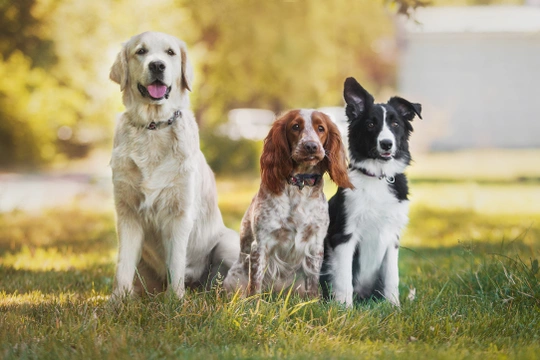
Which is the right dog breed for me? Choosing wisely
Deciding on the right breed of dog is a crucial step for you and the puppy who will become a beloved member of your family. With hundreds of breeds available, making an informed choice benefits both your lifestyle and the dog’s well-being.
Dogs come in many shapes and sizes. Popular purebred dogs, such as French Bulldogs, Labradors, and Cocker Spaniels, are recognised by Kennel Clubs with a known lineage. Meanwhile, designer crossbreeds like Labradoodles, Cockapoos, and Cavapoochons blend breeds with varied characteristics. Once called 'mongrels' or 'crossbreeds', many mixed-breed dogs make wonderful family companions.
The Historical Roots of Dog Breeding
Dog domestication began between 20,000 and 40,000 years ago, with humans selectively breeding dogs for specific jobs such as hunting, herding, and guarding. These early needs shaped the distinct breeds we know today. Dogs bred for herding worked alongside humans for long hours, while guard dogs often worked independently to protect livestock. Hunters relied on dogs to track prey or control vermin.
Understanding Nature and Nurture in Dog Behaviour
Modern research shows genetic traits tied to breed often reflect these original jobs, influencing behaviour and energy levels. While much of a dog’s DNA is common across all breeds, small genetic distinctions matter. Crossbreeds inherit mixed traits, making their behaviour less predictable but often balanced.
Knowing a breed's heritage reveals what type of lifestyle your dog will thrive in. For example, Border Collies are intense workers bred to herd sheep outdoors and require significant mental and physical stimulation. In contrast, Whippets were bred for speed and hunting but are content as calm indoor companions after exercise.
However, genetics is just part of the story. Environmental factors, training, and individual personality shape your dog's nature. Puppies from the same litter each develop unique temperaments, just as human siblings differ.
Because many modern dogs live indoors and often spend time relaxing, it’s vital to research breeds thoroughly before choosing a puppy. Don’t base your decision solely on looks or trends inspired by media – responsible ownership involves matching your dog’s needs to your lifestyle.
For tailored advice on training and care for your new dog, visit dog coach Vicky Carne’s website, offering expert guidance.
How to Find the Dog Breed That Matches Your Lifestyle
Choosing the right breed involves reflecting on your home environment, activity levels, and preferences:
- Space: Larger breeds may need more room and are better suited to houses with gardens compared to small flats.
- Exercise Needs: Some breeds require hours of daily physical activity, while others are content with moderate walks.
- Grooming: High-maintenance coats need regular grooming; low-shedding breeds might suit busy owners or those with allergies.
- Temperament and Compatibility: Consider if the dog is calm, social, good with children or other pets.
Many reputable online breed selector quizzes can help by matching your answers to breeds suited to your lifestyle. For instance, the Kennel Club's official Find a Puppy tool is a trusted resource.
Where to Find a Puppy Responsibly
When ready, choose your puppy responsibly. Consider:
- Reputable breeders who health test their dogs and provide proper socialisation.
- Rescue centres and rehoming organisations offering wonderful dogs needing new homes.
Visiting breeders or rescue centres helps you see the puppy’s environment and meet the puppy’s parents or caregivers. Avoid impulse buying or getting a puppy without proper background information.
Ensuring responsible acquisition secures your puppy’s health and welfare and supports ethical breeding practices.



